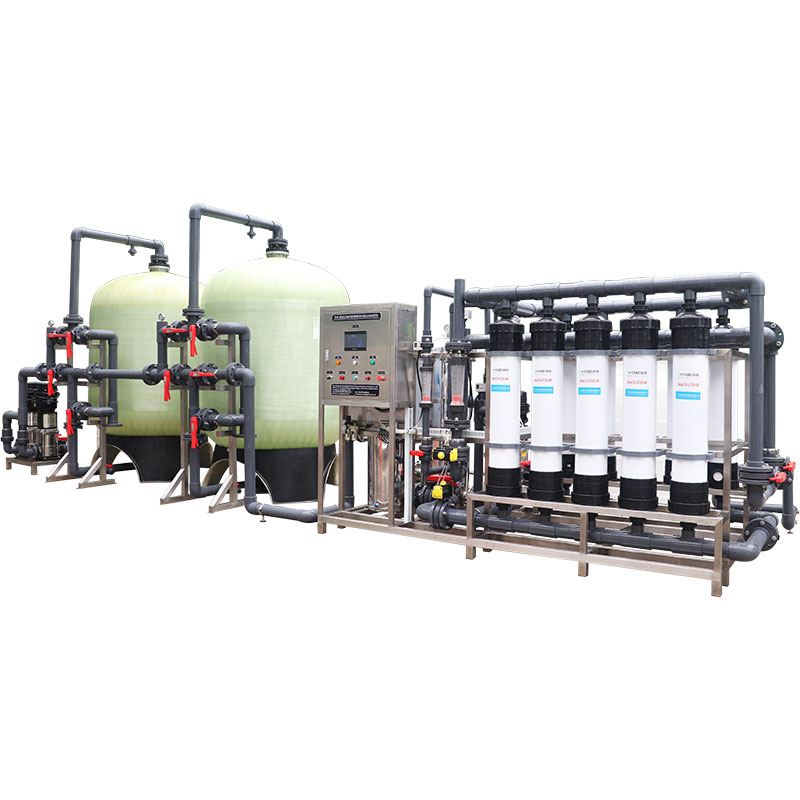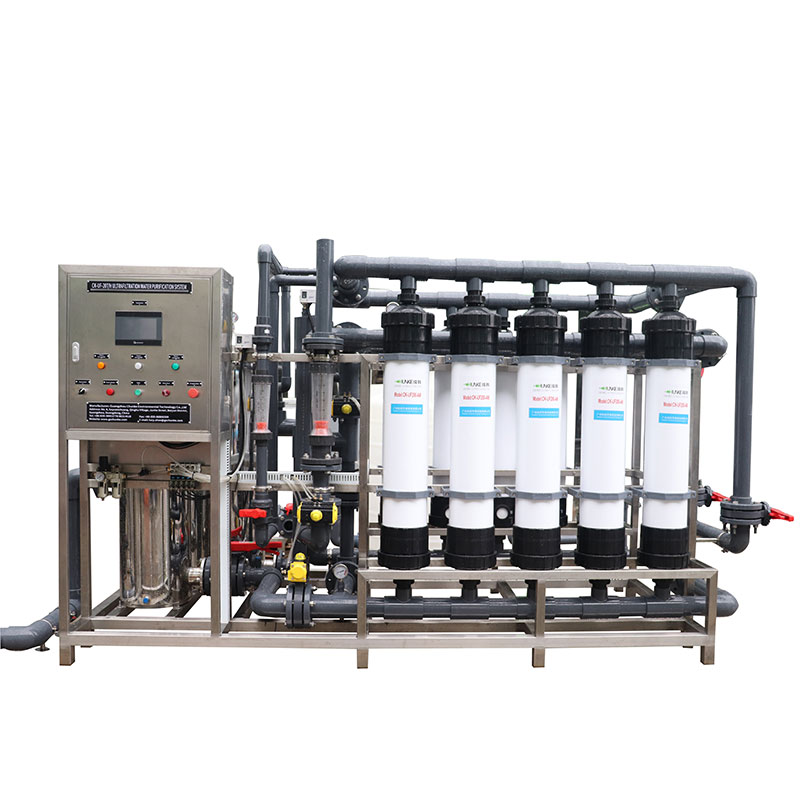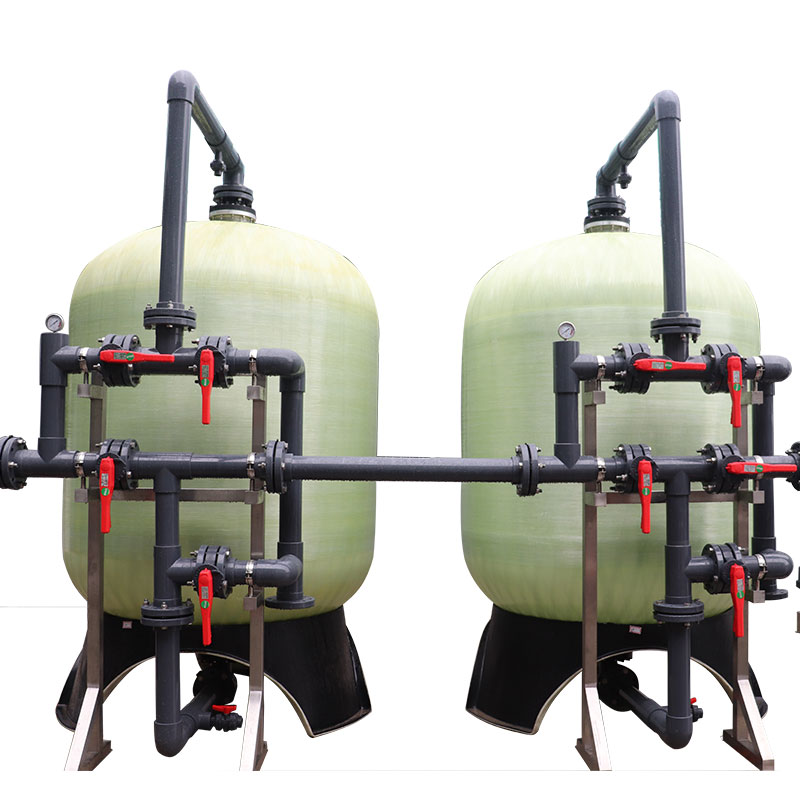Exploring Industrial Ultrafiltration Solutions
In the field of industrial water treatment, ultrafiltration is a powerful tool for achieving high-quality water purification. Let’s delve into the world of industrial ultrafiltration solutions and explore their applications, benefits and technological advancements.
Learn about industrial ultrafiltration
Industrial ultrafiltration involves the use of membranes to remove suspended solids, bacteria, viruses and other contaminants from water. These membranes act as molecular sieves, allowing only water and selected dissolved molecules to pass through while blocking larger particles. This process helps achieve high-quality water quality suitable for a variety of industrial applications.

Which industries use ultrafiltration?
Ultrafiltration technology is widely used in several industries, among which the pharmaceutical and healthcare industries are one of them. These industries rely on ultrafiltration to produce purified water to ensure product safety and consistency, while enabling separation of process streams and treatment of waste streams for safe discharge or reuse.
The pharmaceutical industry is one of the important application areas of ultrafiltration technology. In the pharmaceutical production process, water is a vital raw material, and ultrafiltration technology can help pharmaceutical companies produce high-quality purified water for pharmaceutical production and cleaning processes. Ultrafiltration technology can effectively remove microorganisms, particles and organic matter from water, ensuring that the drugs produced meet strict quality standards and regulatory requirements.
Ultrafiltration technology is also widely used in the healthcare industry. In hospitals and medical institutions, ultrafiltration technology is often used for water purification and disinfection to ensure the cleanliness and hygiene of medical facilities and equipment, thereby ensuring the safety and health of patients. In addition, ultrafiltration technology can also be used in medical wastewater treatment to remove harmful substances from wastewater to reduce pollution and harm to the environment.
In addition to the pharmaceutical and healthcare industries, ultrafiltration technology is widely used in other industries. For example, the food and beverage industry uses ultrafiltration technology to produce high-quality drinking water and food ingredients to ensure product safety and hygiene. The chemical industry uses ultrafiltration technology for wastewater treatment and resource recovery to reduce production costs and environmental pollution. The electronics and semiconductor industries use ultrafiltration technology to provide a water source with low dissolved solids content, preventing scale and corrosion from damaging equipment.

The role of ultrafiltration in the pharmaceutical and healthcare industry?
In the pharmaceutical and healthcare industries, ultrafiltration technology plays a key role. First, ultrafiltration technology can help pharmaceutical companies produce high-quality purified water for pharmaceutical production and cleaning processes to ensure product safety and consistency. Purified water is crucial to all aspects of the pharmaceutical process, from the dissolution of pharmaceutical ingredients to the cleaning of production equipment, all requiring high-quality water quality assurance.
Secondly, ultrafiltration technology is also used for the separation of process streams and the treatment of waste streams. In the pharmaceutical production process, ultrafiltration membranes can be used to separate and extract target molecules, achieve purification and concentration, and reduce the risk of cross-contamination and infection during the pharmaceutical production process. Ultrafiltration technology can also be used for cleaning and disinfection of medical facilities and equipment to ensure patient safety and health. Finally, ultrafiltration technology can also be used in medical wastewater treatment to remove harmful substances in wastewater, reduce pollution and harm to the environment, and realize resource recovery and reuse.
What are the advantages and disadvantages of ultrafiltration technology?
As an advanced water treatment technology, ultrafiltration technology has many advantages, but there are also some disadvantages. The following are the advantages and disadvantages of ultrafiltration technology:
Advantages of ultrafiltration technology:
Ultrafiltration technology can effectively remove microorganisms, impurities and organic matter in water and provide pure water. At the same time, ultrafiltration technology is a reversible separation process that does not require the use of chemicals and will not cause secondary pollution to water quality. Ultrafiltration technology is simple and stable in operation, has a high degree of automation, and can achieve long-term continuous operation.
Disadvantages of ultrafiltration technology:
Ultrafiltration technology requires the use of pumps and other equipment for pressure drive, which consumes high energy. Secondly, the cleaning and replacement of ultrafiltration membranes require high maintenance costs. Ultrafiltration technology produces a large amount of wastewater during the process, which requires treatment and disposal, increasing the environmental burden.
Although ultrafiltration technology has some disadvantages, its advantages far outweigh the disadvantages and remains an effective option for water treatment needs.

Summarize
Ultrafiltration technology has important applications in the pharmaceutical and healthcare industries to provide pure water, separate process streams and treat waste streams to ensure product safety and consistency. Although ultrafiltration technology has some disadvantages, its advantages far outweigh the disadvantages and remains an effective option for water treatment needs.
By understanding the characteristics and applications of ultrafiltration technology, the pharmaceutical and healthcare industries can better select and apply water treatment equipment that suits their needs.




